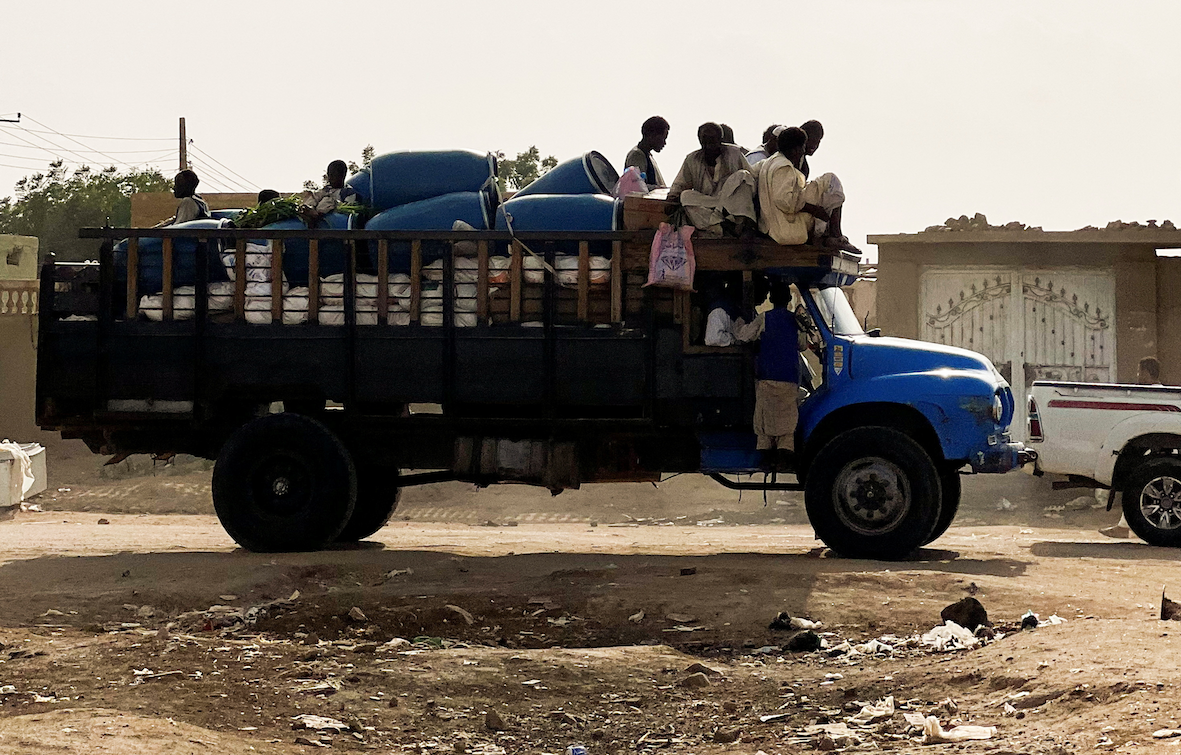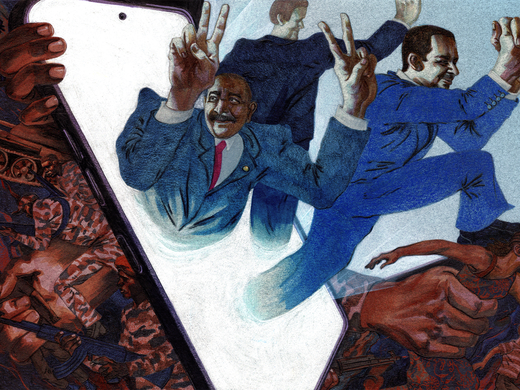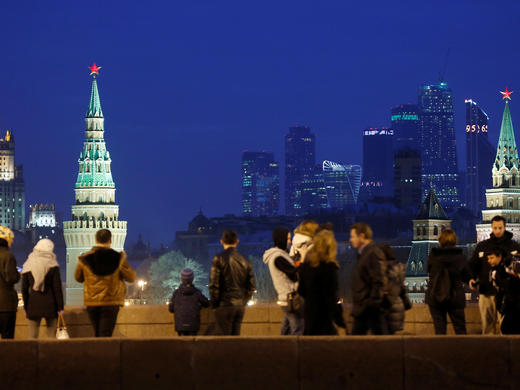Sudan’s civil war and humanitarian catastrophe have been overshadowed in international news by conflicts in Ukraine and Israel’s war on Gaza. Yet what began in April 2023 as a violent power struggle between two rival strongmen has since devastated the entire nation.
While the official death toll stands at nearly 18,000, unofficial sources assert that more than 100,000 people have died; two million refugees have fled into neighbouring countries; and at least 10 million more people are internally displaced. Widespread violations of human rights have reportedly occurred, as public infrastructure, from hospitals and schools to roads and utilities, lies in ruins. Further, the conflict’s perpetrators are accused of using mass starvation and sexual and gender-based violence as weapons of war.
Attempts by regional and international actors to mediate a permanent ceasefire have thus far failed. The Jeddah Declaration of Commitment to Protect the Civilians of Sudan, signed less than a month after the war broke out, was an initial rudimentary agreement toward achieving a permanent cessation of hostilities. The recently concluded Geneva talks led to no tangible results as the Sudanese Armed Forces (SAF) set pre-conditions for their participation that were not met. The proliferation of mediation processes and the conflicting parties’ room to cherry-pick peace initiatives have significantly undermined any meaningful prospects toward a permanent ceasefire.
Amid all of this, both the SAF and the opposing Rapid Support Forces (RSF) have made extensive use of digital propaganda. The RSF — a paramilitary force headed by warlord Mohamed Hamdan “Hemedti” Dagalo — continue to brand themselves online as agents of democracy. This despite credible evidence the group is responsible for continuing atrocities. Indeed, the group has made skillful use of social media, notably X. Yet the RSF’s actions clearly violate the platform’s policy against violent and hateful entities.
The SAF, led by army chief General Abdel Fattah al-Burhan, and the RSF share a mutual desire to whitewash their abuses in the hope they will form part of the post-war leadership in Sudan. To this end, they are competing for the hearts and minds of the Sudanese people and foreign benefactors through information warfare.
As Sudan’s de facto head of state, al-Burhan has unfettered access to government media channels and sympathetic news outlets. By contrast, Hemedti has relied on digital platforms to claim that al-Burhan intends to return Islamist allies of former dictator Omar al-Bashir to power. This narrative conveniently omits key context: The RSF itself evolved out of the Janjaweed militias led by Hemedti, and formerly sanctioned by al-Bashir, to crush a rebel uprising in Darfur two decades ago. Non-Arab ethnic communities were brutalized in that process — actions for which the International Criminal Court (ICC) in 2009 and 2010 charged al-Bashir with genocide and crimes against humanity.
Hemedti’s fighters — recruited from Sudan’s majority Arab population — are once again engaged in ethnic cleansing, systematic killing and sexual violence against non-Arab ethnic groups in Darfur, a vast territory the size of France. Doctors Without Borders told media in early June that the RSF had looted the main regional hospital as part of their months-long siege of El Fasher, the capital of North Darfur. More than a million people are reportedly unable to leave the key hub city amid a stand-off between the RSF forces and remaining SAF units. The paramilitary group has dismissed a UN Security Council resolution on June 13 demanding it stand down in order to avoid mass casualties. A report by UN monitors submitted to the Security Council in January 2024 says a similar scenario that unfolded in late 2023 around the city of El Geneina in Western Darfur resulted in between 10,000 to 15,000 people being killed.
Whereas the horrors of the previous Darfur war in 2003 were mostly — but marginally — communicated through news outlets and aired on news channels, social media platforms today have created platforms that can reach millions. However, these sites are essentially a double-edged sword. They can inform the international community of the extent of the human rights violations that have taken place in Sudan. Yet they also give antagonists a tool to manipulate the optics of their self-serving agendas.
Shortly after initial fighting erupted in Khartoum, the RSF in May 2023 set up a so-called hotline on WhatsApp to connect residents in occupied areas with humanitarian aid and help with evacuations.
Shortly after initial fighting erupted in Khartoum, the RSF in May 2023 set up a so-called hotline on WhatsApp to connect residents in occupied areas with humanitarian aid and help with evacuations. A specialized task force similar to a neighbourhood police watch was created, with the stated mandate of protecting civilians from crime as law and order broke down. Posts in recent months have highlighted a new Reconciliation and Peace Committee handing out food and supplies and visiting children’s classrooms and displacement camps. Other videos show the group claiming to set up water pumps or return stolen property.
On August 12, Hemedti posted an eight-minute video on X showing himself announcing the creation of a protection of civilians force. This new entity is essentially a consolidation of the group’s earlier alleged humanitarian and peace efforts. Hemedti claimed — in an ode to his nickname “Himayti,” which means “protection” in Arabic — that this force will ensure the security and well-being of civilians, in defence of the Sudanese state. It would start its work immediately and expand to cover RSF-held cities across the country.
The video received well over 800,000 views in a few days on Hemedti’s official page alone, painting an image of a concerned and committed leader. The areas of responsibility for the force, outlined in the video, speak to civilians’ concerns around safeguarding innocent lives and increasing distribution of humanitarian aid. And while there’s little expectation among analysts that this force will be actualized, similar to the peace committees, the RSF’s intention to speak to the hearts of the international community is evident. The video makes it clear that the RSF seeks to assert itself as a responsible pseudo-state actor within Sudan, in an effort to somehow render its armed activities forgotten.
As expected, there’s little to no information about how these committees are constituted or how they operate. And while the RSF portrays itself on X as facilitating aid relief, social services and other provisions, UN agencies report that the group has impeded humanitarian relief by obstructing truck deliveries of food aid. Observers routinely have found that information on any RSF social media page cannot be considered reliable or credible. Throughout the conflict, wherever the RSF has gained ground, its fighters have swiftly terrorized civilians, looted homes, ransacked priceless artifacts from museums and razed whole communities.
Further, Hemedti’s communications and political advisers have strategically used language to target different audiences and broaden their reach. Content descriptions are published in both Arabic and English. “They are using [X], to communicate with the Western world,” a Sudanese researcher at Northeastern University’s Civic AI Lab told Wired in February. “On X, they post in English. They are trying to look like a professional army. By contrast, on Facebook, they were trying to communicate with Sudanese people, and they were mostly posting in Arabic.” Given traditional forms of information flow among Sudanese people, there is a subtle acknowledgment within the RSF that altering perceptions is more difficult at home than abroad.
In August 2023, a few months into the war, Meta took down the Facebook pages of both Hemedti and the RSF for violating its policy on Dangerous Organizations and Individuals. The standards are meant to prevent and disrupt real-world harm by barring organizations or individuals that proclaim a violent mission or are engaged in violence from using the platform. Outlined in its rationale, the policy assesses entities’ online and offline behaviour and suspends their pages depending on their ties to violence and ability to cause harm. YouTube has taken similar action.
Yet X has proven unable or unwilling to follow suit. It’s not unreasonable to consider this a consequence of Elon Musk’s acquisition of the platform in October 2022. The billionaire tech magnate — a self-described “free speech absolutist” — fired thousands of content moderation staff within weeks. Two months later, he abolished the company’s trust and safety advisory team. Comprised of close to 100 independent civil society and human rights organizations, the council had served as an ethical compass to guide the handling of problematic content and users.
In the case of the RSF, rather than follow Meta’s example and apply restrictions to the group’s accounts, Musk’s hands-off approach has instead enabled the RSF to build an online façade of compassion, masking its heinous atrocities. Compounding this, the RSF is harnessing Starlink internet services to circumvent internet blackouts and operate as a more efficient fighting machine. Terminals belonging to Starlink — another Musk-controlled company — are being obtained by the RSF via illicit smuggling routes connecting Sudan to neighbouring Chad and South Sudan.
Mutasim Ali and Yonah Diamond, both lawyers from the Raoul Wallenberg Centre for Human Rights, based in Montreal, insist the RSF’s actions in Darfur must be considered distinct from its wider conflict with Sudan’s army. “The RSF’s offensive across Darfur mirrors the genocidal attacks of the early 2000s, only with more advanced weaponry,” they wrote in June in Foreign Policy. Their conclusion stems from the findings of an independent inquiry they organized, featuring dozens of top legal minds from around the world. A UN expert told the BBC something similar in late May. “We do have circumstances in which a genocide could be occurring or has occurred,” said Wairimu Nderitu, a special adviser to the secretary-general on the prevention of genocide. On June 11, the ICC’s chief prosecutor launched a probe into allegations of ongoing war crimes and crimes against humanity committed by the RSF (and the SAF) in Darfur.
Even in the context of X’s hollowed-out content moderation policies, this should be sufficient grounds to dismantle RSF-affiliated accounts on the platform. Hemedti’s personal account alone has more than 281,000 followers; the RSF’s account has nearly 175,000. And while both are careful to never display footage or promotion of violent acts, their purpose clearly contributes to the ongoing innocent death and destruction the paramilitaries are committing in the real world.
It therefore seems straightforward that they would be in violation of X’s policy on violent and hateful entities. The platform’s rules define violent entities as “those that deliberately target humans or essential infrastructure with physical violence and/or violent rhetoric as a means to further their cause.” This applies to “distributing services (such as media/propaganda) to further stated goals.” As punishment, X pledges to immediately and permanently suspend any account guilty of violating the policy.
In reaction to an emailed request for comment, X’s press office auto-responded from a no-reply account with the message, “Busy now, check back later.”
With Sudan’s civil war likely to remain protracted so long as the proliferation of peace processes unfolds, the battle will continue to take place on two fronts: physically, across Sudan’s key towns and cities, as well as in the virtual realm. Putting in place limitations to stem the war in the latter domain is a low-hanging fruit that could make a difference.
This piece first appeared in Middle East Eye.



